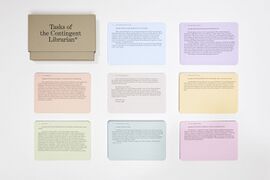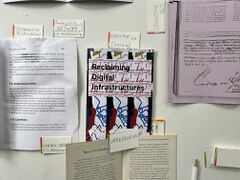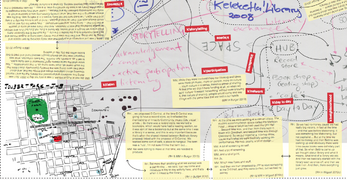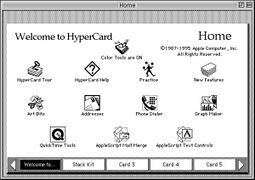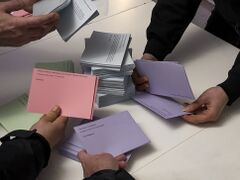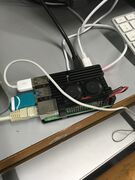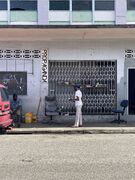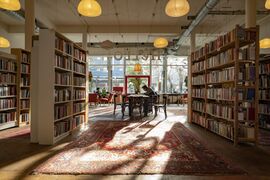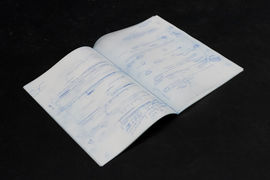How Do We Library That?: Difference between revisions
No edit summary |
|||
| Line 24: | Line 24: | ||
Libraries are complex social infrastructures. It's difficult to describe them without speaking in the generic plural "libraries", or specific singular "a library/the library"; as if they were all the same. Universalisms won't help in understanding what is particular about libraries and collections of texts, or why they have value to their readers. | Libraries are complex social infrastructures. It's difficult to describe them without speaking in the generic plural "libraries", or specific singular "a library/the library"; as if they were all the same. Universalisms won't help in understanding what is particular about libraries and collections of texts, or why they have value to their readers. | ||
Public libraries function more than simply as access points to knowledge. They facilitate many social actions; including reading together, annotating, organising and structuring. As public libraries vanish, shadow and [https://placesjournal.org/article/fugitive-libraries/?cn-reloaded=1 fugitive libraries] appear in their wake. The structure and shape of what we may call libraries, books, or text radically | Public libraries function more than simply as access points to knowledge. They facilitate many social actions; including reading together, annotating, organising and structuring. As public libraries vanish, shadow and [https://placesjournal.org/article/fugitive-libraries/?cn-reloaded=1 fugitive libraries] appear in their wake. The structure and shape of what we may call libraries, books, or text has radically changed yet we lack an adequate vocabulary to describe them without falling back on generics. | ||
== Special Issue 19 == | == Special Issue 19 == | ||
In this Special Issue, we will consider how new texts are generated from what exists already. While working with what is there, we will consider the word "library" as a verb; a set of actions that sustains the collection and distribution of texts. Along the way, we will question indexical attitudes that lean towards universalisms and search for proposals for how we "library" our particular collection. | |||
Rather than looking only at what a library ''stores'', we will also discover what it ''produces''. We will consider collections as not only comprised of things, but also people and actions. In other words, we will attempt to collectively and individually answer the question "How do we library that?". | |||
How can we understand a library-in-the-making, and make it understandable to others? What are points and ways of access, and where do readers cross over? How can we understand its materiality and textuality? | How can we understand a library-in-the-making, and make it understandable to others? What are points and ways of access, and where do readers cross over? How can we understand its materiality and textuality? | ||
<!-- | <!-- | ||
| Line 33: | Line 37: | ||
* Library as network | * Library as network | ||
* Book as program | * Book as program | ||
We will discover libraries as: | We will discover libraries as: | ||
| Line 45: | Line 46: | ||
* sites of learning | * sites of learning | ||
* social spaces of text | * social spaces of text | ||
--> | |||
== Schedule == | == Schedule == | ||
Revision as of 16:36, 15 September 2022
Context
Libraries are complex social infrastructures. It's difficult to describe them without speaking in the generic plural "libraries", or specific singular "a library/the library"; as if they were all the same. Universalisms won't help in understanding what is particular about libraries and collections of texts, or why they have value to their readers.
Public libraries function more than simply as access points to knowledge. They facilitate many social actions; including reading together, annotating, organising and structuring. As public libraries vanish, shadow and fugitive libraries appear in their wake. The structure and shape of what we may call libraries, books, or text has radically changed yet we lack an adequate vocabulary to describe them without falling back on generics.
Special Issue 19
In this Special Issue, we will consider how new texts are generated from what exists already. While working with what is there, we will consider the word "library" as a verb; a set of actions that sustains the collection and distribution of texts. Along the way, we will question indexical attitudes that lean towards universalisms and search for proposals for how we "library" our particular collection.
Rather than looking only at what a library stores, we will also discover what it produces. We will consider collections as not only comprised of things, but also people and actions. In other words, we will attempt to collectively and individually answer the question "How do we library that?".
How can we understand a library-in-the-making, and make it understandable to others? What are points and ways of access, and where do readers cross over? How can we understand its materiality and textuality?
Schedule
One: Tasks of the Contingent Librarian
Summary: Contingent librarianship - an ever-growing set of actions
Monday, September 19th, 2022
11:00-17:30 Introduction to the Special Issue (with Simon)
Pad:
To introduce ourselves we will use cards from Tasks of the Contingent Librarian:
- 52 cards on the table (e.g. bootlegging, indexing, scanning, reading, technologising the word, &c)
- Choose a card that matches your curiosities and/or interests
- Exchange a card with someone else, describing how you relate to the card
- Exchange a card, relate that relation to someone else
- Make a new card, what information does it need?
Tuesday, September 20th, 2022
11:00-17:30 Prototyping with Manetta & Joseph
Pad:
Wednesday September 21st, 2022
11:00-17:30 Introduction to Methods with Steve
Pad:
Two: Print Screen
Summary: Plain text & annotation, from markup to markdown
Monday, September 26th, 2022
Pad:
Tuesday, September 27th, 2022
11:00-17:30 Prototyping with Manetta & Joseph
Pad:
Wednesday September 28th, 2022
11:00-17:30 Methods with Steve
Pad:
Three: Text, TBC
Monday, October 3rd, 2022
Pad:
Tuesday, October 4th, 2022
11:00-17:30 Prototyping with Manetta & Joseph
Pad:
Wednesday October 5th, 2022
11:00-17:30 Methods with Steve
Pad:
Four: Scribes Getting Personal ☞
Monday, October 10th, 2022
Pad:
Tuesday, October 11th, 2022
11:00-17:30 Prototyping with Manetta & Joseph
Pad:
Wednesday October 12th, 2022
11:00-17:30 Methods with Steve
Pad:
Five: Do e-books dream of electronic spreadsheets?
Monday, October 17th, 2022
Pad:
Tuesday, October 18th, 2022
11:00-17:30 Prototyping with Manetta & Joseph
Pad:
Wednesday October 19th, 2022
11:00-17:30 Methods with Steve
Pad:
🍁🍁🍁
Autumn Vacation
Six: Binding Along the Spine
Monday, October 31st, 2022
Pad:
Tuesday, November 1st, 2022
11:00-17:30 Prototyping with Manetta & Joseph
Pad:
Wednesday November 2nd, 2022
11:00-17:30 Methods with Steve
Pad:
Seven: A Textile, A Framework
Monday, November 7th, 2022
Pad:
Tuesday, November 8th, 2022
11:00-17:30 Prototyping with Manetta & Joseph
Pad:
Wednesday November 9th, 2022
11:00-17:30 Methods with Steve
Pad:
Eight: Paper Machines
Monday, November 14th, 2022
References:
Pad:
Tuesday, November 15th, 2022
11:00-17:30 Prototyping with Manetta & Joseph
Pad:
Wednesday November 16th, 2022
11:00-17:30 Methods with Steve
Pad:
Nine: Readable, Writeable, Executable
Monday, November 21st, 2022
Pad:
Tuesday, November 22nd, 2022
11:00-17:30 Prototyping with Manetta & Joseph
Pad:
Wednesday November 23rd, 2022
11:00-17:30 Methods with Steve
Pad:
Ten
Monday, November 28th, 2022
Pad:
Tuesday, November 29th, 2022
11:00-17:30 Prototyping with Manetta & Joseph
Pad:
Wednesday November 30th, 2022
11:00-17:30 Methods with Steve
Pad:
Eleven
Monday, December 5th, 2022
Pad:
Tuesday, December 6th, 2022
11:00-17:30 Prototyping with Manetta & Joseph
Pad:
Wednesday December 7th, 2022
11:00-17:30 Methods with Steve
Pad:
Twelve
Monday, December 12th, 2022
Pad:
Tuesday, December 13th, 2022
11:00-17:30 Prototyping with Manetta & Joseph
Pad:
Wednesday December 14th, 2022
11:00-17:30 Methods with Steve
Pad:

